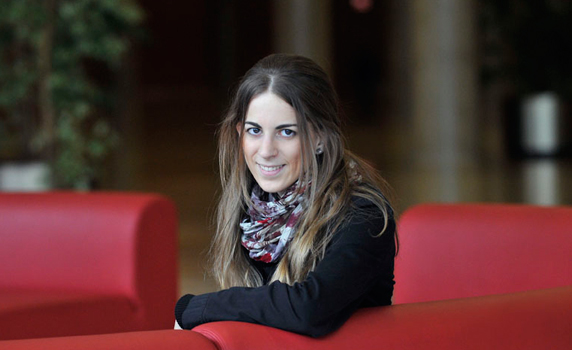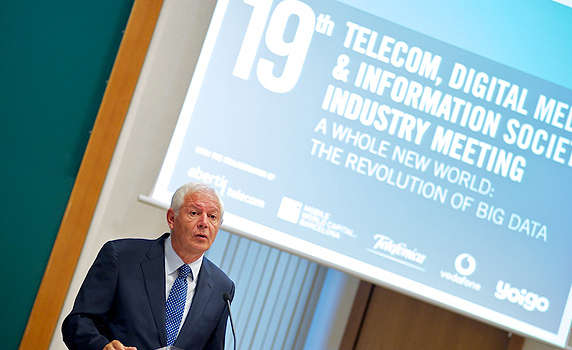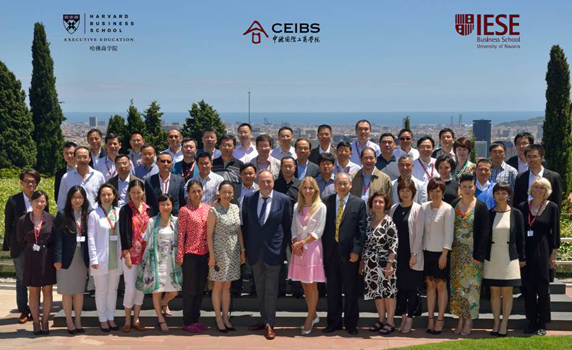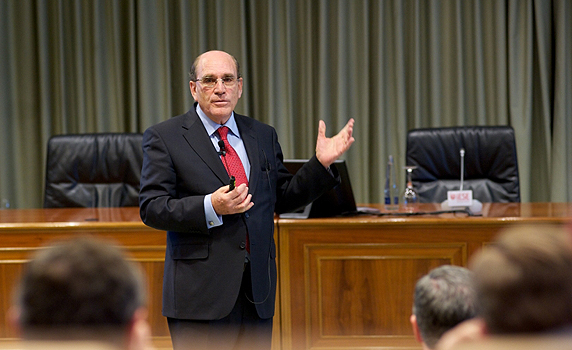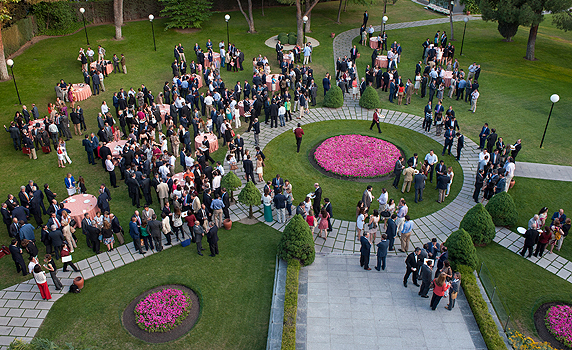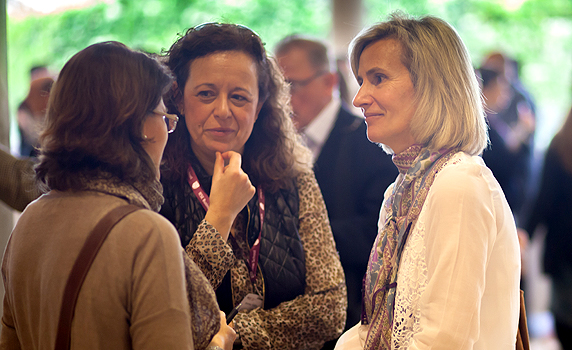![]()
What effect will big data have on the new order of communication technologies and on the media? What direction are new telecommunications taking? How useful can this new data be for developing smart cities? These were some of the questions discussed at the 19th Telecoms, Digital Media and Information Society Industry Meeting held on June 11 on IESE’s Madrid campus.
“Everything that we do leaves a digital trace but we are making little use of this data,” said Elena Alfaro, who works in innovation at the bank BBVA. She reminded the audience that, thanks to this data, “we can now see what was invisible,” and this can be very useful for companies when it comes to making decisions. Alfaro was one of the participants in the Cities in Motion panel. “Cities are beginning to lose control of how they manage the data generated by their citizens,” said Sascha Haselmayer, CEO of Citymart.
More competitive cities
For Enrique Sánchez Nuevo, an executive at Ferrovial, big data has a series of potential uses in cities, such as transparency, personalized services, efficiency and the development of new business models. “All of this will make the city more competitive, both in terms of productivity and savings on providing some services,” he said. He believes that the idea of intelligent cities implies a change in the way that they are managed. “The citizens will make the running,” he said.
María Serrano of Schneider Electric agreed. “There is strong competition between cities to improve the services they provide, but in order to compete they need to collaborate,” she said. The citizens themselves are the main agents in the urban ecosystem and it is they who participate in the planning and management of municipal services.
Juan Manuel Barrionuevo discussed some of the main themes of the IESE project Cities in Motion. “The challenge for cities in the future will be to combine technology with smart governance, because the technology per se isn’t worth anything,” he said.
Interactive media
Eli Noam, director of the Columbia Institute for Tele-Information, discussed how big data is changing the media. “We still think of television in linear terms, but nowadays everything is interactive,” he said. He predicted that the media would be more visual and would have a greater impact as technology becomes cheaper.
Another characteristic of new media will be the degree of content specialization, with greater audience participation and segmentation. “The fourth television generation will be more dynamic and not just from a technological point of view. It will also offer the viewer a series of possibilities that were barely imaginable even a few years ago,” he said.
The talk “Competing for Value” looked at the new business opportunities that big data offers entertainment and communication companies. María Villanueva, director of Sony Pictures TV, said that the new content niches are on the web.
María Ferreras of YouTube highlighted the connectivity, interactivity and quality of some of the elements that characterize the so-called “Generation C:” a new generation of users who are permanently connected to new technologies and new devices.
Ricardo Sevilla , responsible for Digital Media at the Spanish national broadcaster RTVE, sees hybrid television is one of the great challenges of the future. “The work of public media is essential in this process in order to guarantee certain content,” he said. “So far, second screens have not pushed out traditional television,” said Xavier Redon of Abertis.
Connectivity is key
Some operators in the sector also took part in the meeting. “The process of change opens up the opportunity to develop new business models but it is essential to have high-speed connections for this to happen,” said Rafael Miranda, director of strategy at Vodafone Spain.
Francisco Salcedo, head of new business at Telefónica, said telecommunications companies need to reinvent themselves, evolve and attract new clients. “The digital user has abandoned traditional devices and we either follow them or lose them,” he said. Eduardo Taulet, CEO of Yoigo, said that operators have to guarantee the supply of networks with sufficient capacity to support these types of technological applications and at a reasonable cost to the user.
Spain’s secretary of state for telecommunications and the information society, Víctor Calvo-Sotelo, made the closing remarks at the meeting which was led by IESE professors Joan E. Ricart and Josep Valor, and by Santiago Miralles.
![]()
